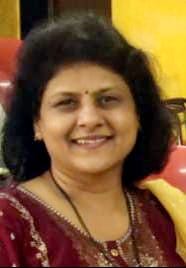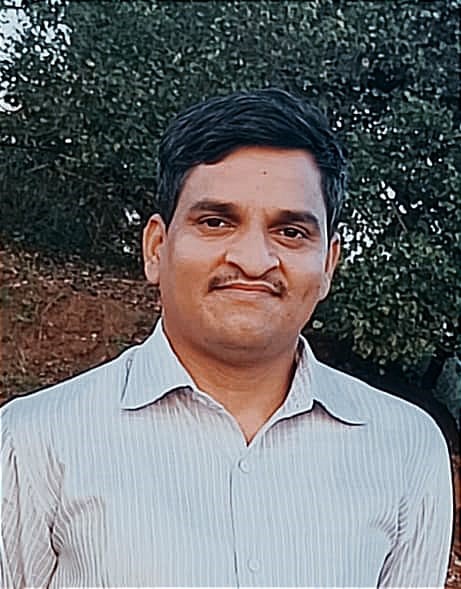

The Department of Economics of D.G. Ruparel College started its journey in 1952 at the time of inception of D.G. Ruparel College.
We offer Economics as a subject at undergraduate level to students belonging to Arts, Commerce and Science stream. Our department is one of the few colleges in Mumbai which offers the subjects of Quantitative Economics and Econometrics taught by well qualified faculty. The department included Ex-Principal Dr. Sule and Dr. Prakash Salvi, PhD guide, as our faculty members.
The core papers includes Microeconomics, Macroeconomics, Quantitative economic analysis, Mathematical economics, Development economics ,Contemporary issues in Indian economics ,International economics ,Financial economics.
Among the electives there are Elementary Quantitative Techniques, Econometric Methods,Environmental economics, and Descriptive statistics.
The course is thus self -contained and adequately designed to meet the highest standards of demand in the world of academics on the one hand and prove capable of meeting the needs of industry in general, on the other.
Apart from regular theoretical and practical classes, the department organizes lectures by eminent speakers, educational visits, book reviews and many such other activities.
Mission:
To develop quantitative aptitude among students of economics along with overall improvement of economic literacy.
Vision:
To improve analytical ability, confidence and the employability of the students.
Strength of the Department:

Head of the Department,Assistant Professor
M. A. , SET
Specialization : Agricultural Economics

Assistant Professor
M. A. , NET
Specialization : Banking & Agricultural Economics

Assistant Professor
MA in Economics (Mumbai School of Economics and Public Policy), SET
Specialisation:- Econometrics and Statistics

Assistant Professor
M.Sc Economics (Gokhale Institute, Pune), NET
Specialisation:- Econometrics and statistics

Assistant Professor
M.Sc Economics(Gokhale Institute, Pune), SET
Specialisation:- Econometrics and statistics
We are pleased to announce that Department of Economics under Economica is starting C- Future Programme.
C- Future is Career FutureProgramme for professional career development of Economics students.
Aim
Providing the career-oriented knowledge to the students
Online Certificate short-term Course on “Data Analysis: An introduction to R Programming”
Workshop on “Self Defence” on 3rd February 2020 for the students. It was conducted by two professionally trained masters from Big Box Activity Centre
ARTHOTSAV is the Economics Fest organized by ‘ECONOMICA’. The Economics Department of D. G. Ruparel College. It is the student volunteer initiative that focuses on the development via team building activities since 2005. The department has been imparting the knowledge of Economics through several activities conduct every year including our annual intercollegiate fest –“ARTHOTSAV”. Economica inspires the students to work hard so that they can aspire to thrive in the practical world. This is why the department proudly stands with the motto INSPIRE, ASPIRE, THRIVE!
Arthotsav is the one of the most celebrated and prestigious Fest of the D. G. Ruparel college of Arts, Science and Commerce. Arthotsav has been conducted annually since 2011. It provides opportunities to acquire leadership skills, explore one creativity and most importantly cooperation and team bond. Participants revisit their classroom teachings and test their abilities in simulated environment. Arthotsav tries to cover all the core aspects of Economic programs and so the experience becomes a solid foundation for once career.
Department of Economics Notable Alumni Ms. VishakhaBorse (1992)
Deputy Commissioner of State Tax
Swati Ghiya (2008) Tech Writing and Translation Specialist (Corporate Trainer), Accenture Solutions Pvt. Ltd.
Shreya Bhatt (2008) Submitted Ph.D. thesis to Mumbai University
Samiksha Jadhav (2008) Assistant Professor, Raheja College (Mumbai)
Rahul Dandekar (2009) Assistant Professor, Raheja College (Mumbai)
Shashank Jalagavkar (2009) Industrial Development Bank of India(IDBI), Mumbai
Vinay Wakhare (2012) Research Assistant, District Vocational Education and Training Office
Neeraja Vaidya (2012) Machine Learning Specialist, Aureus Analytics
Poojan Bhatt (2014) Associate in the Investment Banking Team, Bank of America
Gandhali Vaidya (2014) Advanced Analyst (Transfer Pricing), Ernest & Young University(USA)
Priyanka Salvi (2016) Product Manager in SME division Development credit bank (DCB)
GuntassUtpal (2016) Research Fellow, National Institute of Public Finance and Policy (New Delhi)
Kedar Kelkar (2016) Research Associate, IIM-Bangalore
Vaishnavi Patil (2018) M.Sc Gokhale institute of Economics and political science, Assistant professor in economics, D.G. Ruparel College, Mumbai
Rohit Phalake (2018) Actor (Marathi)
Vishal Upadhyay (2018) Working in Banking Compliance, Germany
Neha Chavan (2019) Assistant Lecturer for Econometrics, Meghnad Desai Academy of Economics


